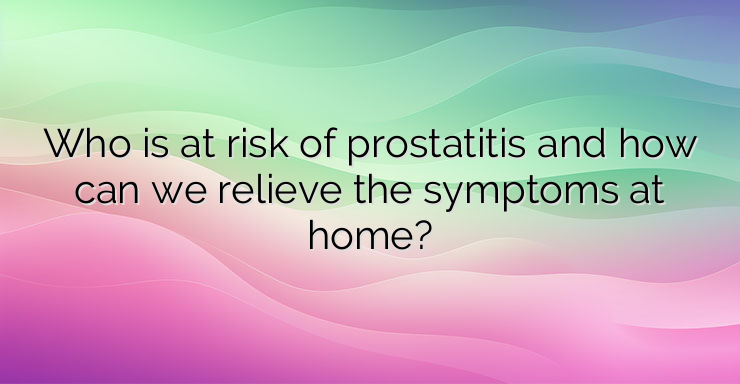Prostatitis, or inflammation of the prostate gland, is a common painful condition that involves inflammation of the prostate and sometimes the areas around the gland. Scientists have identified four types of prostatitis: chronic prostatitis or chronic pelvic pain syndrome, acute bacterial prostatitis, chronic bacterial and asymptomatic prostatitis. Prostatitis is the most common problem in men under the age of 50 and the third most common urinary tract problem in men over the age of 50. Chronic inflammation of the prostate gland is the most common and least understood form of prostatitis. It can occur in men of any age group and affects 10% to 15% of the male population of Europe. There are a number of reasons for the condition, sometimes it remains undiagnosed. If prostatitis is caused by a bacterial infection, it is usually treated with antibiotics. Depending on the cause, inflammation can appear gradually or suddenly. It may improve quickly, on its own or with treatment. Some types of prostatitis last for months or tend to recur. Acute bacterial prostatitis is often caused by common bacterial strains. The infection can begin when bacteria from the urine enter the prostate gland. Antibiotic therapy is used to treat this type of inflammation. If the administered medications do not eliminate the cause, the disease often becomes chronic. Damage to the nerves in the lower urinary tract, which may be due to surgery or trauma in this area, can contribute to the development of prostatitis. However, in many cases, the cause of the disease remains unknown. Symptoms may include pain or burning when urinating, difficulty urinating, frequent urination (especially at night), a sense of urgency, cloudy or bloody urine, pain in the abdomen, groin, or lower back, and painful ejaculation. The presence of a bladder or urethral infection, pelvic trauma, urethral catheter, or prostate biopsy may increase the risk of developing inflammation of the gland. Some lifestyle changes can help control and relieve symptoms. Soak in a warm bath or use a heating pad. Limit and avoid alcohol, caffeine, spicy or acidic foods that can irritate the bladder. Avoid prolonged sitting or cycling as it can irritate the prostate. Drink more fluids if there are no other contraindications. Frequent urination helps remove bacteria from the bladder.


Leave a Reply